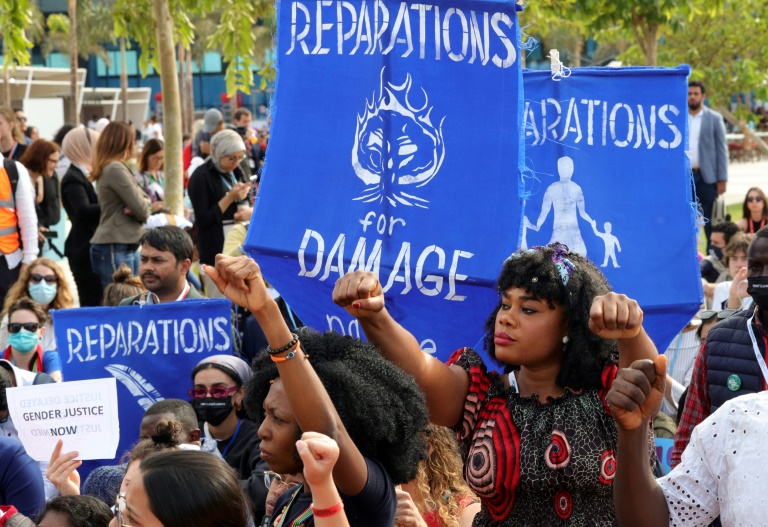Climate-driven extremes have highlighted the costly impacts of a warming world for developing nations
UN climate talks that were supposed to end Friday were extended by a day in an effort to break a deadlock over creating a fund for developing countries devastated by the fallout from global warming.
Representatives from nearly 200 countries have gathered at the COP27 in Egypt for two weeks with the aim of driving forward action on climate change as the world faces a worsening onslaught of extreme floods, heat waves and droughts.
But wealthy and developing nations were still struggling to find common ground on creating the fund and on a host of other crucial issues with only hours before the summit in the Red Sea resort of Sharm el-Sheikh was due to end.
“Today we need to shift gears again, time is not on our side,” Egyptian Foreign Minister Sameh Shoukry, who chairs the COP27 talks, told delegates.
“I remain committed to bringing this conference to a close tomorrow in an orderly manner.”
The daunting list of urgent tasks includes finding agreement — and funds — for the emissions cuts needed to limit average warming to 1.5 degrees Celsius from pre-industrial levels, which scientists say is a safer guardrail to avoid the most dangerous impacts.
For many developing countries — and small island states threatened by sea level rise — the defining issues at the conference is money for the “loss and damage” caused by climate change.
A cascade of climate-driven extremes in recent months — from floods in Pakistan and Nigeria to heatwaves and droughts across the world — have shone a spotlight on the ferocious impacts of a warming world for developing nations that are also struggling with debts and surging inflation.
In a bid to find a compromise, the European Union proposed late Thursday the creation of a fund for the most vulnerable nations but warned it was its final offer.
The EU proposal indicated that the bloc, previously fearful of open-ended climate damages liability, has “shifted significantly”, said Rachel Cleetus, lead economist at the Union of Concerned Scientists’ climate programme.
But she said all eyes were now on the United States and China, the world’s top two polluters, fresh from a thaw in their climate relations after a meeting between Presidents Joe Biden and Xi Jinping earlier this week in Bali.
“It’s crunch time,” Cleetus told AFP. “There’s no time anymore for the US to sit on the sidelines. They have to come out with what their position is to show that they’re being constructive.”
Cleetus added that China should also make its position clear, particularly on the issue of whether it would contribute to such a fund and pledge not to draw from it.
“We think China and the US can really unlock this in these last 24 hours,” Cleetus said.
– ‘This is our final offer’ –
Earlier in the week, the G77 and China bloc of 134 developing countries proposed creating the loss and damage fund at the COP27 meeting, with other details to be agreed later.
European Commission Vice President Frans Timmermans told reporters on Friday that the EU offer had two “very important” conditions that differ from the G77 proposal.
He said the fund should be for “the most vulnerable” nations and the money should come from a “broad funder base” — code for countries including China that have become wealthier since they were listed as developing countries in 1992.
“I have to say this is our final offer,” Timmermans said. “This is where the (EU) member states can find an agreement and I have to thank all of them for for the courage to go this far. But this is it.”
Timmermans said he had explained the EU proposal to US delegates who were “very interested in seeing” that reaffirming the need to step up efforts to cut emissions to reach the 1.5C target be reflected in the conclusions.
Pakistan’s climate minister Sherry Rehman, whose country chairs G77+China, expressed a willingness to “working with each other to find common ground”.
“It is up to all of us to steer a path that sends a powerful message from this COP that the implementation COP actually turned into a historic actionable COP,” she said.
She said the G77 had zeroed in on one of the options put forward in a draft loss and damage text “with a few changes that have been submitted and we are working on with each other”.
Developing nations have been relatively united in calling for the loss and damage fund at this COP. Some small island states said they had discussed walking out if they do not see progress.
But the AOSIS coalition of small island states has also indicated it wants to see China, India and other major polluters contribute.









